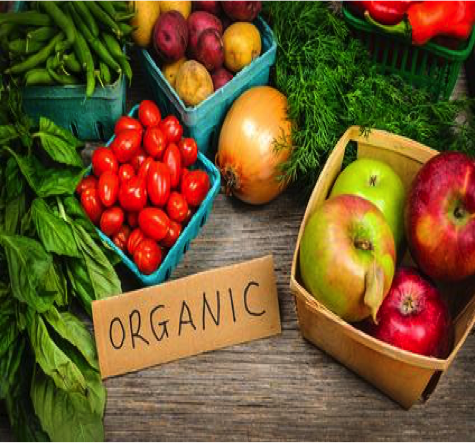Are Organic Foods Healthier?
Should I buy organic produce? Is it really healthier? I get asked this question all the time.
My answer has always been Yes, No, and Maybe. Here’s why:
- Supermarkets boast that they have 125 organic fruits and vegetables in the store today…the displays are beautiful and all sorts of claims are made about the higher nutritional quality. Is it true? A recent review of 343 studies published in the British Journal of Nutrition found that organic foods are more healthful than conventional foods, mainly because the organic contain higher concentrations of antioxidants. Polyphenol antioxidant levels were significantly higher in the organically raised produce. The percent increase ranged from 19% to 69% depending on the polyphenolic compound tested. This increase has not been seen in all previously published studies, but would represent a side benefit if true.
- OK now what are polyphenols? They are a kind of chemical that (at least in theory) may protect against some common health problems and possibly the effects of aging. They act as antioxidants meaning that they remove free radicals; chemicals that have the ability to cause damage to cells and tissues in the body.
MAYBE ORGANIC FOODS CONTAIN MORE NUTRITION!
But that’s not the major reason most of us who buy organic spend our money on organic vs conventionally grown foods.
- It’s about cadmium. From the study: “Levels of the toxic metal, cadmium, were significantly less in the organically grown produce. It was thought that the cadmium found in conventionally grown produce came from the inorganic fertilizers that were used. The EPA stated in 2014 that cadmium is a probable human carcinogen.”
- YES TO ORGANIC FERTILIZERS!
- It’s about pesticides. Pesticide residues were four-fold lower in the organically raised produce than the conventionally raised produce. This result has been consistently seen in all of the previously published studies, and is probably the #1 reason that people choose organic produce.
- Consumer Reports analyzed pesticide residues on produce and found dangerously high levels of toxic residues on the food we eat in this country. Their study computed toxicity levels on 27 food categories and concluded that even a single serving of some produce can deliver unsafe levels of toxic pesticide residues for young children, who consume far more produce per pound of body weight than adults do and who are much more sensitive to the effects of pesticides. Long-term exposure to pesticides may interfere with a child’s neurological and immune-system development, researchers for the study say. Seven foods that are commonly eaten by young children scored up to 125 times what is deemed safe for consumption by a young child.
- Worst offenders; They were fresh peaches, apples, grapes, green beans, pears, spinach, and winter squash.
- We know that pesticides accumulate in the body over time, so as adults we might have over 200 unwanted chemicals in our body.
- YES TO MANY ORGANIC FOODS!
WHAT ABOUT THE COST? Aren’t organic foods really expensive?
You can still buy organic without overspending by being choosier about the types of organic products you buy. Every year, the Environmental Working Group releases its “Dirty Dozen”—a list of 12 fruits and vegetables with the highest contamination levels. I believe these foods are worth buying organic.
There’s also a “Clean 15” chart which shows those which are lowest in pesticides. In my opinion they might not justify the extra cost.
SO NO need to spend your money buying organic sources of the Clean 15
You will find these charts published in www.EWG.org They are easily downloaded and printed or you can email me and I’ll hard mail you a copy.
To your health,
Nedra

